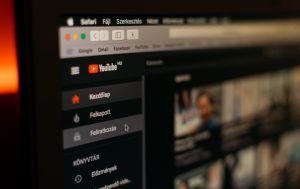In today’s society, social media provides us a new way of receiving and send information within communities fast. Everyone using the social media is both a information spreader and a receiver. Differently for traditional paper media, social media allows people to receive information in a broader and faster way. Social media can not only be used to communicate with each other but also can be used as a tool of education.
YouTube as a social media websites has millions of videos includes varies fields. A large number of educational channels you tubers are professional educational workers. For example, when I took economic course last semester, I used to watch a you tuber called “Dr. Cliff” who is a economic instructor in a college. The review sections he posted on you tube are totally free that attracted millions of viewer to watch his videos. The reviews of his video are mostly positive, and for myself, I found his videos helped me a lot in my course. I really appreciate authors like Cliff for providing such useful materials on the internet and making these materials open to everyone. What’s more, I found a link under the comments of his videos that invites volunteers to help those who need help studying economics. The website from the link created a community for people who are studying economics to share their thoughts online. People were originally attracted by the videos, however, the worth of the community they created from the videos is more than the worth of the videos themselves because ” community enables a group of potential learners to meet common goals(Johns, page 277). Today, the number of members in the community is still growing and the posts in the community is also growing. The best part of the community is that everyone can be a learner and a teacher, and everyone is equal regardless of age and educational background.
varies fields. A large number of educational channels you tubers are professional educational workers. For example, when I took economic course last semester, I used to watch a you tuber called “Dr. Cliff” who is a economic instructor in a college. The review sections he posted on you tube are totally free that attracted millions of viewer to watch his videos. The reviews of his video are mostly positive, and for myself, I found his videos helped me a lot in my course. I really appreciate authors like Cliff for providing such useful materials on the internet and making these materials open to everyone. What’s more, I found a link under the comments of his videos that invites volunteers to help those who need help studying economics. The website from the link created a community for people who are studying economics to share their thoughts online. People were originally attracted by the videos, however, the worth of the community they created from the videos is more than the worth of the videos themselves because ” community enables a group of potential learners to meet common goals(Johns, page 277). Today, the number of members in the community is still growing and the posts in the community is also growing. The best part of the community is that everyone can be a learner and a teacher, and everyone is equal regardless of age and educational background.
On the other hand, social media provides learner a new way of study, the accuracy of the information provided on the social media is not guaranteed. Since everyone can post on social media, the quality of educational posts are not guaranteed by any authorities. The information on the internet can sometimes be misleading and confusing, thus learners have to determine whether they should believe in these materials or not.
Teaching Online: A Guild to Theory, Research, and Practice. Johns Hopkins University Press. 2015